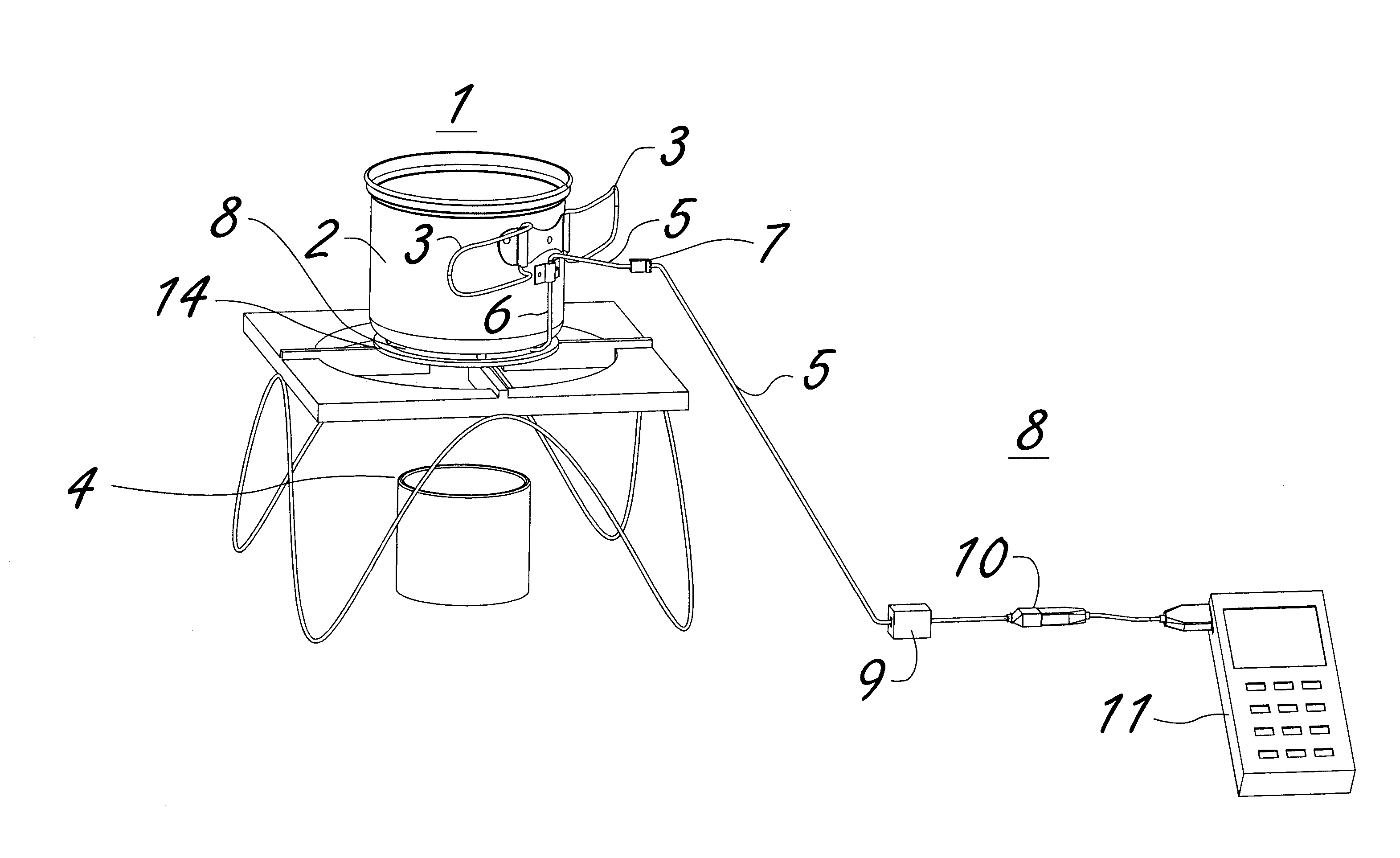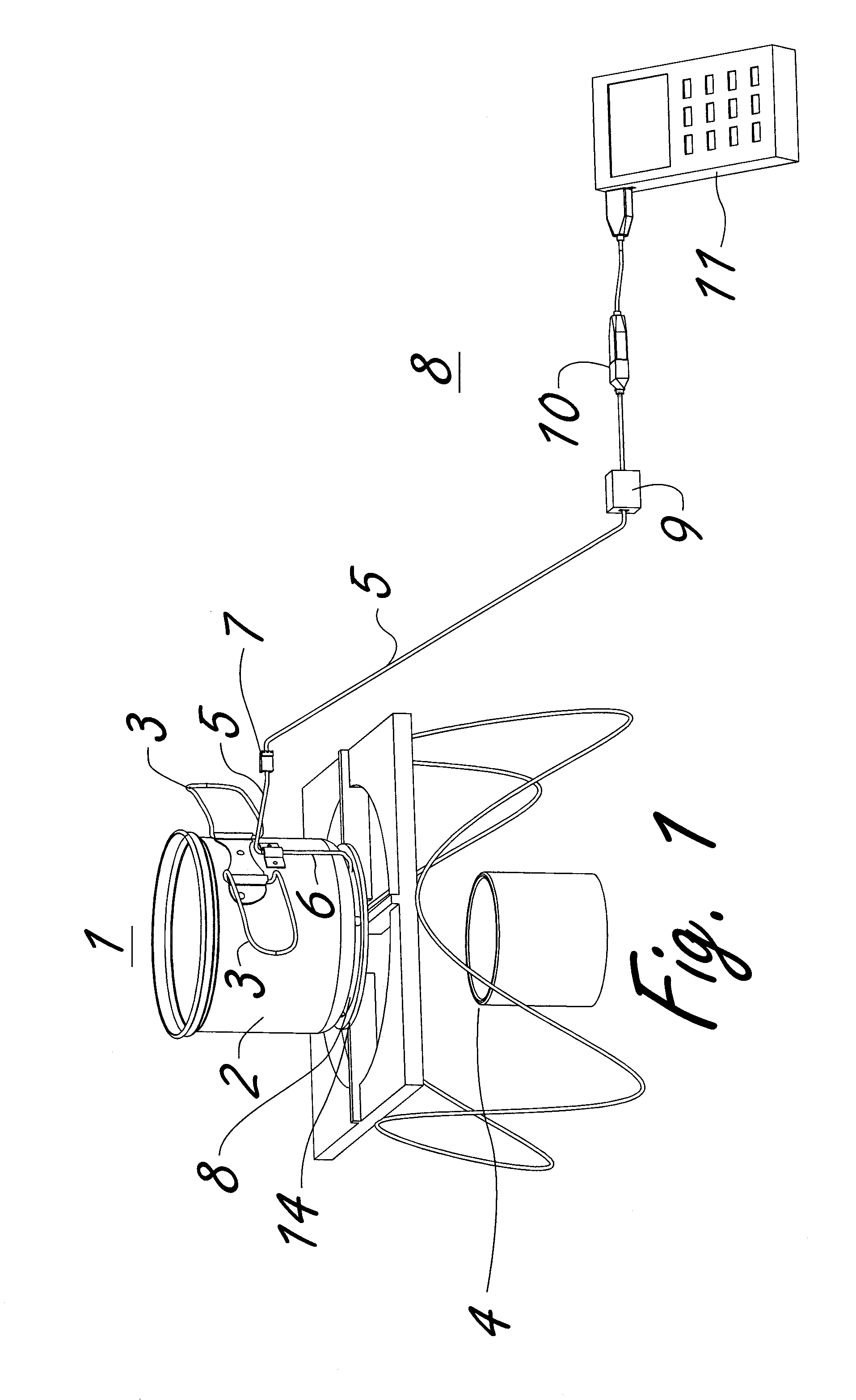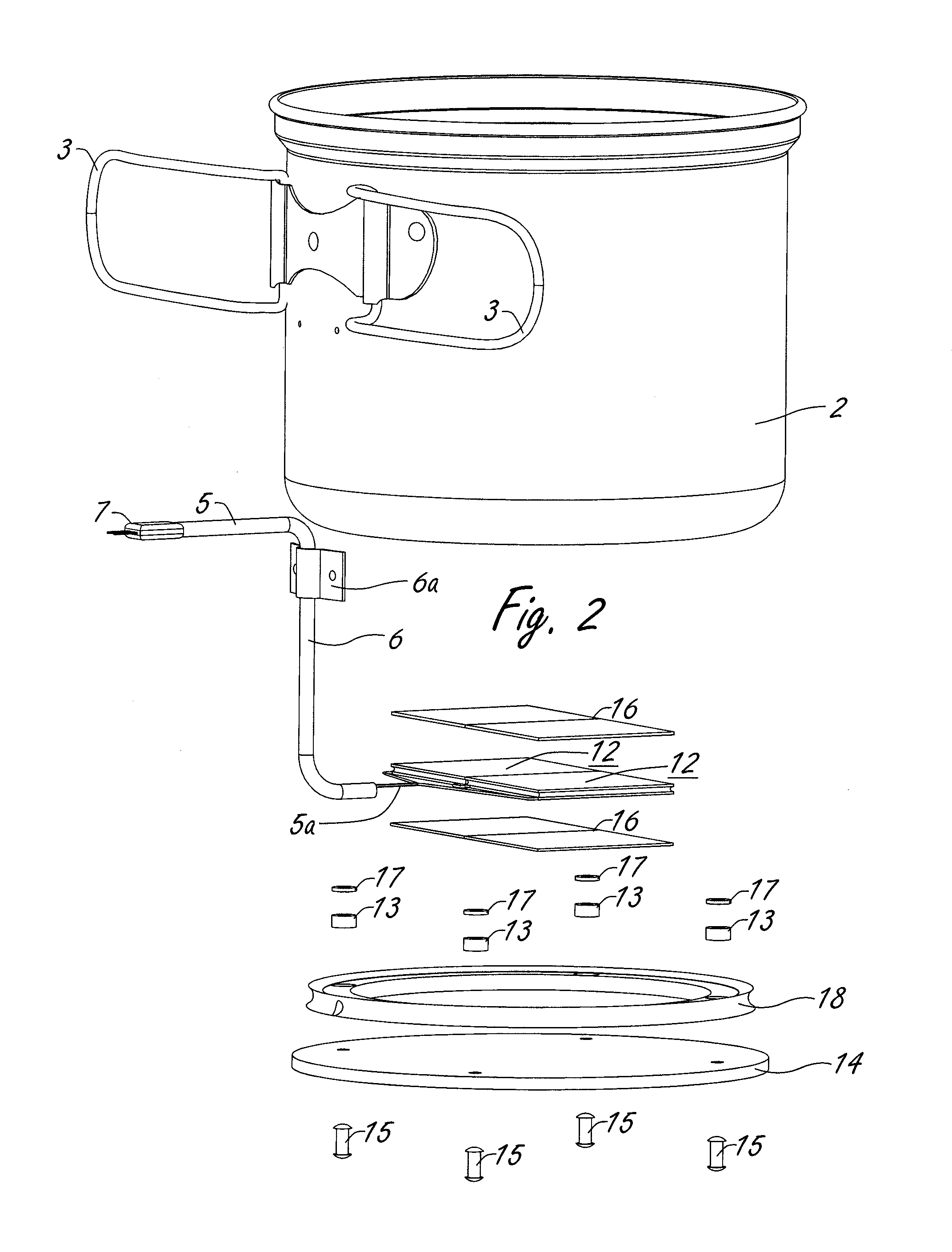Passively Cooled Lightweight Thermoelectric Generator System
a generator system and lightweight technology, applied in the direction of machines/engines, mechanical energy handling, mechanical equipment, etc., can solve the problems of many people without access to electrical power, many people the developed electrical grid may lose electricity access, so as to improve thermal linkage, reduce thermal conductivity, and improve thermal conductivity
- Summary
- Abstract
- Description
- Claims
- Application Information
AI Technical Summary
Benefits of technology
Problems solved by technology
Method used
Image
Examples
Embodiment Construction
[0012]The present invention utilizes the thermoelectric effect to generate electricity. More specifically, the temperature difference imposed across a thermoelectric element creates a voltage due to the differences in diffusivity and phonon drag imposed upon the n-type and p-type carriers within the thermoelectric element. Under the second law of thermodynamics, from statistical mechanics interpretation, the thermoelectric power of a material can also be defined as the entropy per charge carrier. The present invention harnesses the entropy created by the temperature differential imposed by the system, and transforms this entropy (heat) into electrical power.
[0013]Thomas J. Seebeck discovered thermoelectric power in 1821, and the conversion of temperature differences directly into electricity is appropriately known as the Seebeck effect. To realize a true thermoelectric device, both n-type and p-type materials are electrically coupled to complete a circuit. Jean-Charles Peltier disco...
PUM
 Login to View More
Login to View More Abstract
Description
Claims
Application Information
 Login to View More
Login to View More - R&D
- Intellectual Property
- Life Sciences
- Materials
- Tech Scout
- Unparalleled Data Quality
- Higher Quality Content
- 60% Fewer Hallucinations
Browse by: Latest US Patents, China's latest patents, Technical Efficacy Thesaurus, Application Domain, Technology Topic, Popular Technical Reports.
© 2025 PatSnap. All rights reserved.Legal|Privacy policy|Modern Slavery Act Transparency Statement|Sitemap|About US| Contact US: help@patsnap.com



